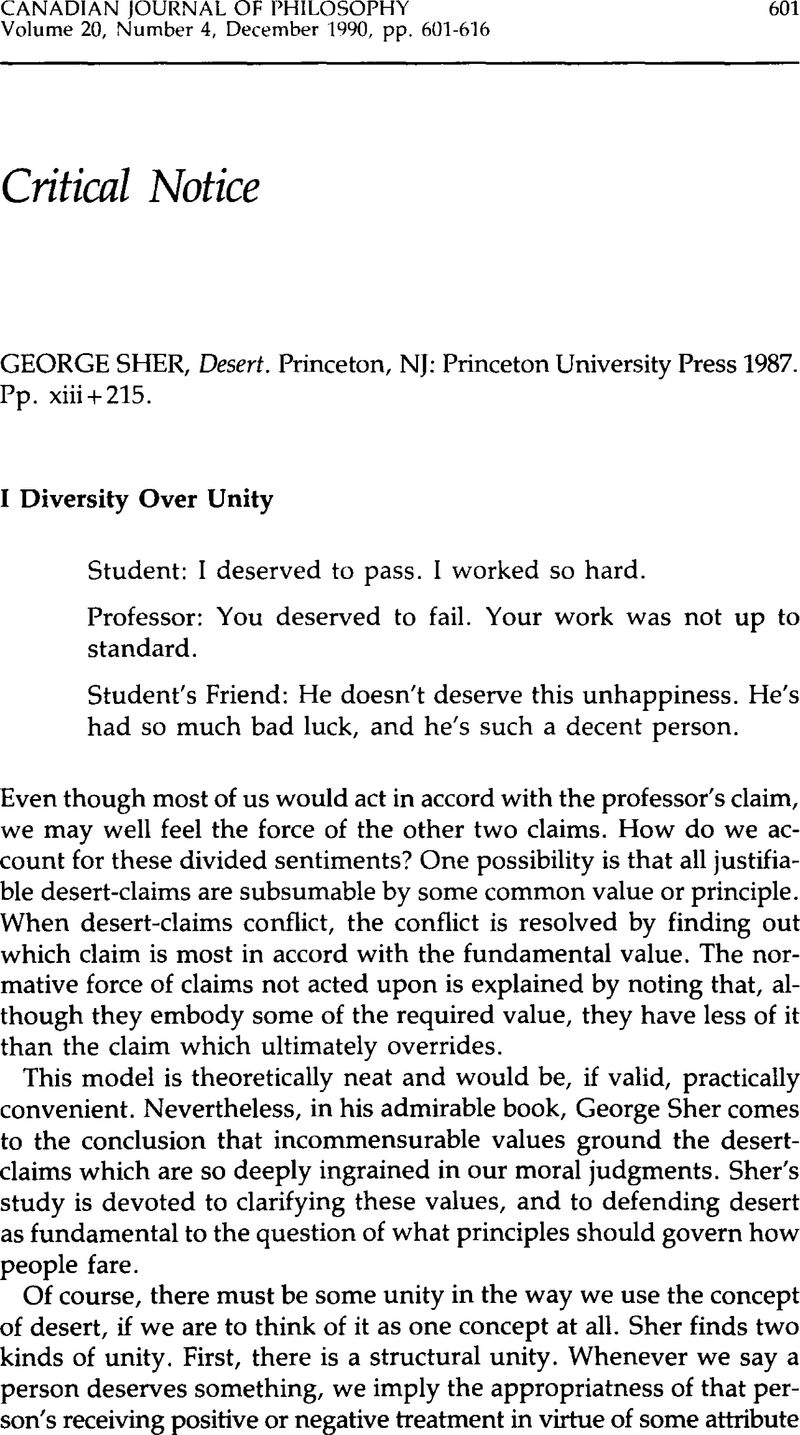No CrossRef data available.
Published online by Cambridge University Press: 01 January 2020

1 This structural unity was noted by both Joel Feinberg and John Kleinig in their ground-breaking papers on desert. See Joel Feinberg, ‘Justice and Personal Desert’ in his collection Doing and Deserving (Princeton: Princeton University Press 1970) 55-87. See also John Kleinig The Concept of Desert,’ American Philosophical Quarterly 8 (1971) 71-8. Relevant, too, is Kleinig's book, Punishment and Desert (The Hague: Martinus Nijhoff 1973). There are other places where Sher echoes Feinberg and Kleinig. Sher's book, however, is a genuine advance over this earlier work, both in its comprehensiveness and in the new territory it explores.
2 In this regard, we might think of Sher's work as closer to what Rawls calls moral theory than to moral philosophy. See John Rawls, ‘Kantian Constructivism in Moral Theory,’ The Journal of Philosophy 77 (1980) 554. I should note that in my text I do not distinguish between moral theory and moral philosophy.
3 Herbert Morris, ‘Persons and Punishment’ in Morris, On Guilt and Innocence (Berkeley: University of California Press 1976)
4 G.E.M. Anscombe, ‘Modern Moral Philosophy,’ Philosophy 33 (1958) 1-19
5 Robert Nozick, Philosophical Expla11atiolls (Cambridge, MA: Harvard University Press 1981) 452-9
6 Of interest here are articles by James Rachels and Norman Daniels. See James Rachels What People Deserve’ and Norman Daniels ‘Meritocracy’ in John Arthur and William H. Shaw, eds., Justice and Economic Distribution (Englewood Cliffs, NJ: Prentice Hall 1978) 150-63 and 164-78 respectively.